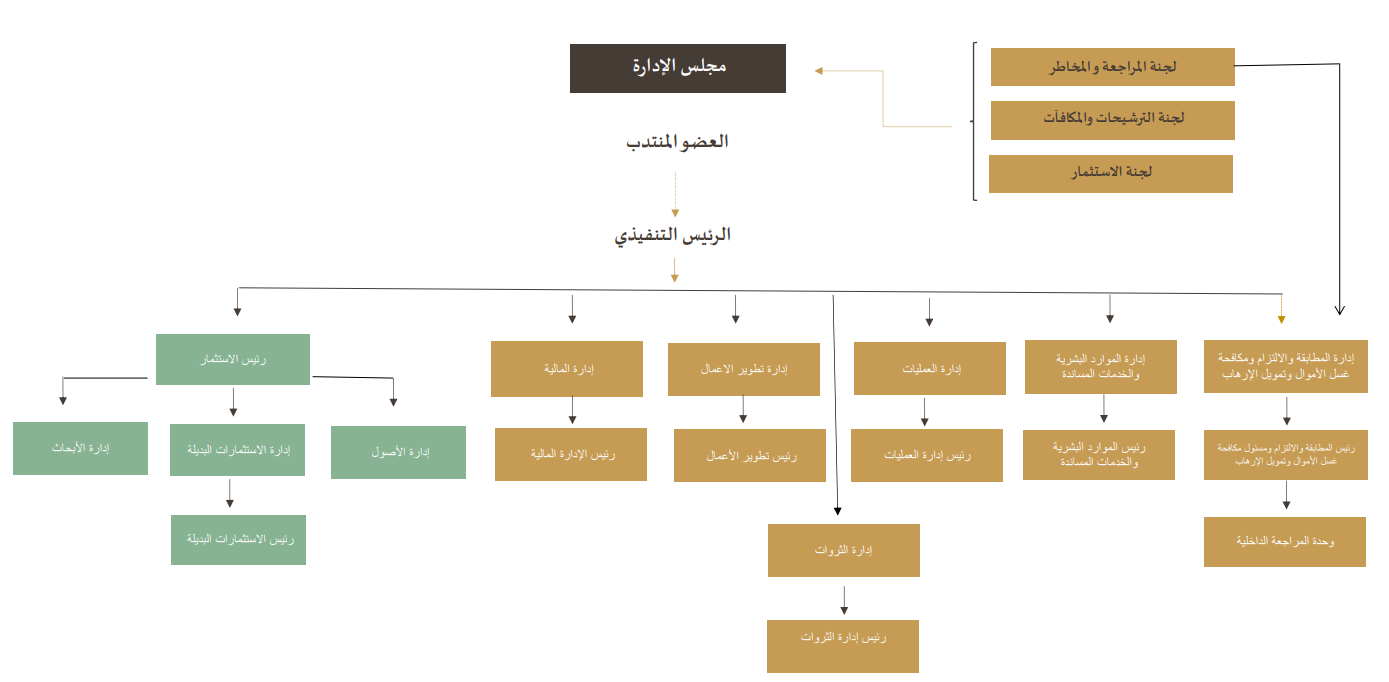Organizational
structure

The ultimate authority in the company. Board of Directors in-charge of determining the vision, mission, goals and the strategy of the company. The board also sets up suitable systems and policies for managing the risks, enhancing the internal controls and regulating the financial, administration and operations. The most important functions of the board of directors are:
The executive department which is responsible for the implementation of the investment strategy of the company in respect of fund management and portfolio management including all operational functions relating to the establishment and management of investment funds, managing relations with customers and raise funds. Asset Management department develops indicators and performance reports for all investment portfolios managed by the company. The department is divided into two units, first is the investment funds units and the second one is client portfolios unit.
The department concerned with the market researches, development of products and supervision of the marketing programs throughout the company or the investment funds managed by the company. This department will provide updated market information to be used as base for current and future demand assessment. The department conduct a regular researches about investors (customers) preferences and requirements to ensure the company ability to develop its market share and meet those requirements. In coordination with Asset Management, the department will undertake the management of customer relations to enhance customer’s satisfaction and ensure all complains (if any) is addressed in timely manner.
A focal point of the company business, operating department includes business units of functions of investment operations back-office, periodic reporting, reconciliations, bank accounts management and reconciliations in addition to human resources, information technology, accounting and finance, general administrative services. The operations department plays an important and key role in providing support services that enables the rest of the business units in the company achieving its objectives smoothly.
The central unit to oversee the compliance and risk management function throughout the company. Compliance & Risk Department develop, maintain and manage the compliance annual and compliance monitoring programs in the company in line with the rules, regulations and legislation governing the company’s business, In addition to risk management and evaluation of internal control systems.